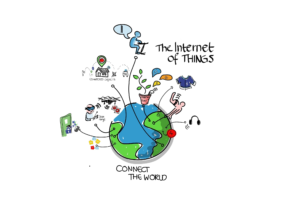Artificial Intelligence Ethics What You Need to Know
Artificial Intelligence Ethics is a rapidly evolving field of study at the forefront of technological advancement. The increasing sophistication of AI systems demands careful consideration of their ethical implications, as they rapidly permeate various facets of our lives, from healthcare and finance to transportation and law enforcement. This article dives deep into the complexities of AI ethics, outlining key challenges and offering actionable solutions to navigate this critical juncture in human history. We will examine potential biases, privacy concerns, and job displacement risks associated with AI development and deployment, and outline strategies for promoting responsible AI development. This includes the use of ethical guidelines, transparency, accountability, and ongoing collaboration. The structure of this article is as follows: it first establishes a clear understanding of the fundamental ethical challenges posed by AI, then explores specific areas of concern, and finally provides practical recommendations for how to address these concerns in a responsible way.
1. Understanding the Fundamentals of Artificial Intelligence Ethics
1.1 Defining AI Ethics
AI ethics encompasses the moral principles and guidelines that should govern the development, deployment, and use of artificial intelligence systems. It’s a multi-faceted field that addresses the potential for AI to perpetuate existing societal biases, undermine privacy, and potentially displace workers. This exploration goes beyond just technical proficiency to grapple with the wider societal impact of AI. A fundamental understanding of ethics is crucial in the era of rapidly advancing AI technology. This area requires us to think critically about the possible consequences of our decisions, focusing not just on technical capabilities, but on human values and the broader social impact.
2. Bias in AI Systems
2.1 Identifying and Addressing Bias
AI systems are trained on massive datasets, and if these datasets reflect existing societal biases—racial, gender, or socioeconomic—the AI systems will inherit and amplify these biases. For example, facial recognition algorithms have demonstrated biases against people of color. This presents a significant ethical concern because these systems may perpetuate discriminatory outcomes in areas like loan applications, hiring processes, and even criminal justice. Recognizing the inherent biases within data sets is paramount to developing fair and equitable AI applications. Mitigating bias requires careful data curation, diverse training datasets, and rigorous testing to identify and address disparities. Active participation from diverse stakeholders is also crucial.
3. Privacy Concerns in AI
3.1 Protecting Sensitive Data
AI systems frequently rely on vast amounts of personal data for training and operation. This raises serious privacy concerns, especially regarding the collection, storage, and use of sensitive information. Facial recognition technology, for example, necessitates careful considerations around data security and the potential for misuse. Strict adherence to privacy regulations and data governance frameworks is essential. Implementing robust security measures, emphasizing data minimization, and ensuring transparency in data usage are crucial for protecting privacy in the age of AI. Furthermore, systems should be designed to protect data from unauthorized access and misuse.
4. Job Displacement and the Future of Work
4.1 Adapting to the Changing Landscape
The automation potential of AI raises concerns about job displacement across various sectors. While AI can enhance productivity and efficiency, it might displace human workers if not carefully managed. AI is expected to automate many tasks now done by humans. This includes tasks in manufacturing, customer service, and even some professional roles. Adapting to this transformative era requires proactive measures for workforce retraining and reskilling initiatives to equip individuals with the necessary skills for the future job market. Exploring new avenues for employment and societal support will be crucial for successfully navigating the transition.
Related Post : How Biotech Is Pushing the Boundaries of Medicine and Healthcare
5. Ethical Guidelines and Regulation
5.1 Establishing Clear Frameworks
Developing comprehensive ethical guidelines and regulations for AI is crucial to ensure responsible innovation and development. This area requires a global conversation to ensure consistency and adaptability as AI technology continues to evolve rapidly. Internationally recognized standards and norms are essential to prevent unintended consequences and harmful biases. Establishing clear frameworks, focusing on transparency, accountability, and fairness in design, development, and deployment is pivotal. Furthermore, ensuring regulatory mechanisms are adaptable to the dynamic nature of AI technology is key for the ongoing preservation of ethical standards.
6. The Role of Transparency and Explainability
6.1 Building Trust through Transparency
Transparency in AI systems is crucial for building trust and accountability. When AI systems make decisions that impact individuals, it is essential to understand how those decisions were made, especially for critical sectors such as healthcare or finance. Explainable AI (XAI) aims to provide insights into the reasoning behind AI’s decisions, which can reveal biases and enhance understanding of the implications of those decisions. By enhancing the transparency of algorithms, we foster accountability, address potential inaccuracies, and build public trust in the use of AI systems.
7. The Future of AI Ethics and Human-AI Collaboration
7.1 A Collaborative Path
A collaborative approach is essential in ensuring that AI development and deployment aligns with ethical considerations. This approach involves incorporating diverse perspectives, including ethicists, policymakers, technologists, and the public in the design and decision-making process related to AI. Interdisciplinary efforts between different stakeholders are essential for guiding AI’s development in a direction that supports social progress and promotes human well-being. This collaboration necessitates a continuous feedback loop to adapt and address emerging ethical considerations.
8. Conclusion of AI Ethics and Implications
8.1 Summary of Ethical Considerations
The ethical considerations of AI are crucial for its continued development and usage. Addressing issues such as biases, privacy concerns, and job displacement necessitates a proactive and collaborative approach. Ethical guidelines and regulations are crucial for promoting responsible development, transparency, and accountability in the field of AI. Understanding these implications is paramount to ensure that AI evolves and is deployed in a responsible and ethical manner that benefits all of humanity.
9. Case Studies: Illustrative Examples of AI Ethics Issues
9.1 AI-Powered Decision-Making
Examples of AI-powered decision-making illustrate the potential for bias and discrimination. A prominent example involves loan applications, where AI systems trained on historical data may perpetuate existing discriminatory practices against certain demographic groups. This necessitates the development of guidelines and regulations to ensure fair and equitable outcomes, and the importance of careful dataset curation to avoid perpetuating or reinforcing social biases.
9.2 AI in Criminal Justice
AI applications in the justice system highlight ethical concerns regarding biases and fairness. Predictive policing algorithms, for example, could amplify existing societal prejudices if not implemented with rigorous oversight. This necessitates strict adherence to ethical standards and careful validation to minimize bias in these applications. Regular audits and evaluations are essential to ensure equitable outcomes and accountability in the field. Understanding these issues can inform ethical decision-making to address the potential negative implications of AI implementation.
In conclusion, navigating the ethical considerations of Artificial Intelligence is crucial for its responsible development and deployment. Understanding the potential biases, privacy concerns, and job displacement risks, and proactively addressing them, is paramount. We must embrace transparency, accountability, and collaboration to ensure AI benefits humanity as a whole. For a deeper understanding, explore resources on ethical AI guidelines, and stay informed about ongoing discussions in the field. By committing to ethical principles, we can harness the power of AI for positive societal impact.
Share this content:














Post Comment